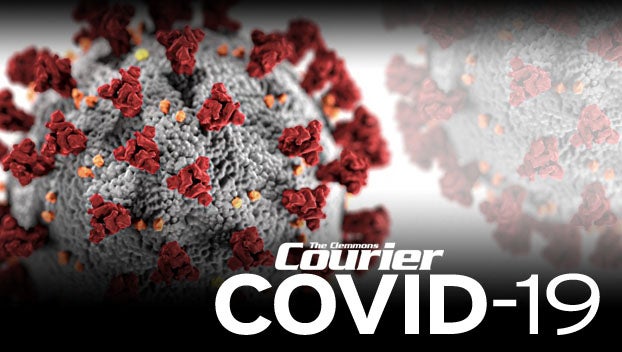Novant Health administers its first COVID-19 vaccine
Published 11:37 pm Thursday, December 17, 2020
|
Getting your Trinity Audio player ready...
|
ICU nurses are first among patient-facing team members to receive vaccine
WINSTON-SALEM — Following the arrival of multiple ultralow freezers, extensive training of its team members and a successful day of mock distribution and administration, Novant Health inoculated its first front-line health care workers on Thursday, using the Pfizer-BioNTech COVID-19 vaccine.
The integrated health care system is an approved vaccination administration site and will distribute vaccines at three of its facilities in North Carolina: Novant Health Forsyth Medical Center in Winston-Salem, Novant Health Presbyterian Medical Center in Charlotte and Novant Health Brunswick Medical Center on the North Carolina coast.
“For the first time since this pandemic began, we can all feel more hopeful that we’re making real progress toward the safe, effective vaccination of our communities,” said Carl Armato, CEO and president of Novant Health. “This is undoubtedly one of the largest undertakings of its kind — in our time. From how the vaccine is stored, to the distribution of double doses, to vaccine hesitancy, the road ahead has many challenges, but Novant Health is prepared and ready to take those head-on.”
As a member of the North Carolina COVID-19 Vaccine Advisory Committee, Novant Health leadership has been working closely with federal, state and county officials to develop and align allocation and distribution plans for the vaccine. This includes a four-phase vaccine prioritization framework, which began Thursday with phase 1A: patient-facing health care workers on the frontlines. “The goal is to get as many team members vaccinated, as supply allows, with all four phases designed to ensure effective, efficient and, most importantly, equitable distribution,” according to Armato.
“It’s our hope that the vaccination of our team members will not only help keep them safe, but will also send a clear message to anyone who questions it: This vaccine is proven safe and effective,” Armato added. “The science is there and as a trusted expert in our region, our reputation and track record will help us communicate that any vaccine we administer to our patients is safe, effective and is being distributed fairly.”
The first doses of the vaccine administered by Novant Health were given to Dr. Samuel Dartey-Hayford, a pulmonary and critical care physician at Novant Health Presbyterian Medical Center, Marge Avila, a registered nurse at Novant Health Forsyth Medical Center and Madison Valenza, a certified nursing assistant at Novant Health Brunswick Medical Center. All three team members have been on the front lines, caring for COVID-19 patients and fighting this pandemic since March.
“I’m excited to get the vaccine today as it brings hope to a year that has been very challenging with COVID-19,” said Marge Avila. “I’m getting this vaccine so I may remain healthy to care for my patients and my family. I also want to send a message that it’s safe and will be the best way we can all work together to bring an end to this pandemic.”
The health care system, which has 15 hospitals and more than 700 clinic locations across its footprint, is developing a communications plan designed to address vaccine hesitancy across the communities it serves. Part of this public health information campaign includes highlighting the intention of community leaders to get vaccinated, most notably Charlotte Mayor Vi Lyles.
In its first allocation, Novant Health received nearly 7,000 doses from the state, which determines supply distribution. The health care system purchased ultralow freezers with the capacity to store at least 500,000 doses and has additional capacity to store more than 1 million doses at different temperature levels.
“While we are prepared to vaccinate as many people as quickly as possible, it’s vital to understand that we are not out of the woods, yet. It will take many months to vaccinate our communities more broadly. With community spread at an all-time-high, now is not the time to let our guards down,” Armato concluded. “Vaccinations are key to ending this pandemic, but we also have the tools to curb its spread today: wearing a mask, physically distancing and washing our hands.”
Phase 2 includes essential workers, adults at high risk for exposure and adults at increased risk of severe illness. The broadest phases of vaccination begin with phase 3: teachers and staff in school systems, child care workers and critical industry workers. Phase 4 includes all populations not previously vaccinated. Community members looking for more information about how, when and where to get vaccinated should visit NovantHealth.org/Coronavirus for more information.




